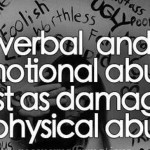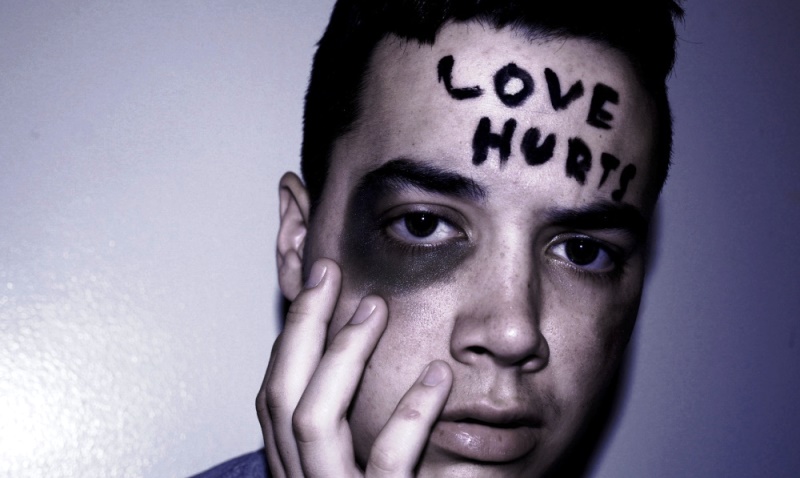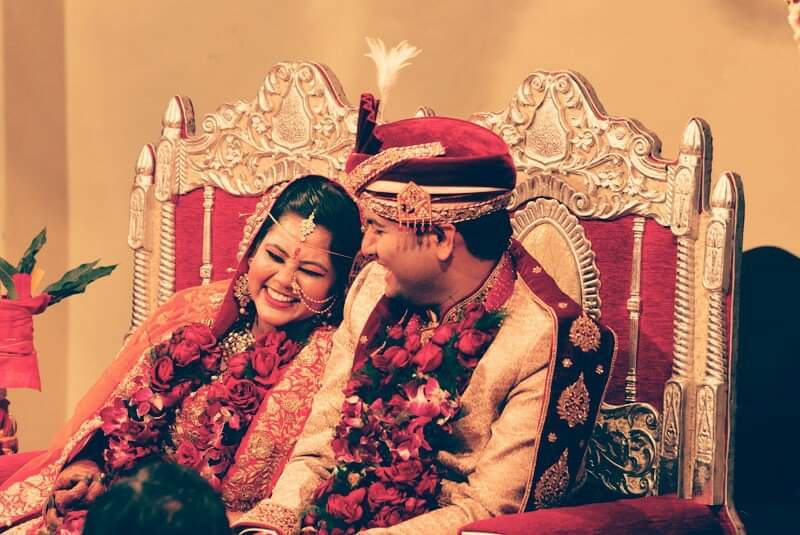Let’s just get to the point here: Because there are no visible/physical signs, it is difficult for someone with an emotionally abusive husband to be certain that their husband is psychologically hurting them. All that one can understand is that they “do not feel good” in their partner’s presence.

Image source: Pixabay, under Creative Commons License
You may be in an emotionally abusive marriage and have no clue about it. There is no hitting or beating involved; there are subtle put-downs and mocking, which make it hard for someone to put a finger on what it is that makes them unhappy about their marriage.
But there is a name, and it is emotional abuse. Emotional abuse is rampant in relationships of all kind. But in romantic relationships it is most misunderstood. Emotional abuse involves a certain kind of behavior and/or language that is designed to demean the other person. It attempts to attack the other’s self-esteem, sense of worth and personality.
It usually implicates verbal abuse, which can involve shaming, name-calling and even yelling. It also includes isolation and threats. There is gaslighting, stonewalling and conducts that makes the abused feel alone and insignificant.
The effects of emotional abuse can be devastating. It can lead to anxiety, frequent panic attacks, wrecked self-esteem, and trust issues. According to Marti Loring, author of the book, Emotional Abuse,
“It’s very erosive. Whether it’s overt or covert, the abuse negates a woman’s very being.”
Suggested read: Everything You Need To Know About Emotional Abuse
Examples of emotional abuse

Image source: Google, copyright-free image, under Creative Commons License
Here is an example to demonstrate how subtle emotional abuse can be:
Tina’s husband Samuel, at times, walks just past her and avoids making any contact. He purposely moves his body away from Tina’s. This is aimed at making Tina feel awful. It makes Tina question if she did anything wrong. When Tina mentioned this to Samuel, he would just call her cuckoo and say she was too needy.
Emotional abuse isn’t always subtle. It can be violent too. For example:
Elizabeth’s husband Gunther tried to control her and whenever he could not get it his way, Gunther would verbally abuse Elizabeth if she tried to meet her friends or family. Initially, when they were just friends, Gunther was not like that. Elizabeth would talk to him for hours and share ideas with him. But after the couple had their first child, things changed. At the drop of a hat, Gunther would scream at Elizabeth. She would try harder, because she thought she wasn’t doing good enough. But with each passing day, he got more violent. He did not hit her but he verbally abused her, intimidated her, asked her to cut off all ties with her loved ones, and always told her that she was stupid in thinking he was abusing her in any way.
How prevalent is emotional abuse?

Image source: Google, copyright-free image, under Creative Commons License
According to Steven Stosny, author of Love Without Hurt: Turn Your Resentful, Angry, or Emotionally Abusive Relationship into a Compassionate, Loving One,
“Just about everyone knows someone who’s experienced it.”
Studies show that 35 per cent of women in romantic relationships have experienced emotional abuse. According to one such study, partners who are emotionally abusive are more likely to threaten suicide, while partners of these emotional abusers are more likely to commit suicide.
There worst news regarding emotional abuse is that, according to experts, it is on the rise. According to Stosny, people today feel their happiness is everything, and as soon as they think this right of theirs is being violated, they get angry and hostile. One who is emotionally abusive is caught up in a web of resentment. He feels powerless, and so tries to assert is power by exerting it emotionally. He wants attention and he was people to obey him. And when one doesn’t, he thinks he is entitled to punish this person by not talking to them, or ignoring them.
Women in emotionally abusive marriages are as unaware about the abuse as her friends and family. According to Kelly McDaniel, who is a counselor, most women in such abusive relationships are heard saying, “The relationship didn’t start out that way’” or “Most of the time, things seemed really good.”
She says,
“Repetitive emotional abuse has an almost numbing effect. It becomes normal.”
How to know if your husband is emotionally abusive

Image source: Google, copyright-free image, under Creative Commons License
According to experts, people ending up in emotionally abusive relationships or marriages is an image of what they absorbed and imbibed about affection as children. Children who have judgmental and unkind parents are likely to confuse love and affection with pain.
According to McDaniel,
“We can end up duplicating this pain over and over again in our adult relationships.”
Women in emotionally abusive relationships are likely to have had parents who were emotionally abusive.
Suggested read: Effects An Emotionally Abusive Relationship Has On A Person
For such women to recognize whether or not their husbands are emotionally abusive, we have made a list of warning signals that can help identify emotional abuse.
1. Your husband is a blamer
He will blame you for every single thing that goes wrong in his life. You might find difficulty in spotting this trait especially if he is deploying the blame game in a very subtle way. Also, he may be couching the blame in a compliment. According to Stosny,
“The law of blame is that it goes to the closest person. You’ll eventually be the object of it.”
2. Your husband is bitter
If your husband is a resentful man, he is likely to be someone who cannot cope with the fact that life isn’t always fair. When life gets tough, he will just get tougher on you. This is a self-defense mechanism, through which your husband masks his insufficiencies.
3. He has a weird sense of entitlement
His sense of entitlement might be associated with his bitter nature. He thinks that if life is not fair to him, then he is allowed to break the rules just to get what he wants. When he becomes close to someone, he feels entitled to do whatever he wants (read: abuse), to have things his way.
4. Your husband has a superiority complex
People who are emotionally abusive feel that they are better than other people. Therefore, they will be very competitive and self-righteous. Ironically, these might be the qualities that first attracted you to your husband, but after marriage these will become the root cause of his emotionally abusive behavior.
5. He is overly sarcastic
Sarcasm is designed to make the other person bad. Though sarcasm can be witty and funny, when stretched it can become a tool of emotional abuse.
6. He lies
An emotionally abusive partner is likely to tell lies about his past. He will distort the truth about his life before you to impress you. This also shows that you have a low self-respect.
7. Your husband is green-eyed
Your husband’s jealousy is toxic. According to Stosny, jealousy is, “the only naturally occurring emotion that can cause psychosis”; psychosis is the inability to differentiate the actual from the imaginary.
8. Your husband tries to isolate you
If your husband is emotionally abusive, then he might ask you to sever all ties with our friends. Even if he does not say that out loud, he is likely to discourage you every time you make some plans with your close ones or friends. This is his attempt to isolate you so that you have no one to depend on but him.
Dealing with an emotionally abusive partner can be difficult. First you need to understand if you are vulnerable to choosing a man who will hurt you. McDaniel explains, emotionally abusive relationships can be addictive too. When romance gets mixed with fear, our brain associates the two as if they always go together. To break this pattern can be difficult, but it is necessary.
Also, an emotionally abused woman is likely to get used to that behavior and lack the strength to end such a toxic relationship. To please and impress her emotionally abusive husband, the wife has made so many alterations and adjustments in her behavior that her sense of self and level of confidence is very little.
The other thing that can make it difficult for a wife to leave her emotionally abusive partner is guilt. This is especially true for women who ignored the initial red flags in the marriage. She will feel both guilt as well as shame while leaving her partner.
If you have an emotionally abusive partner, then you need to talk to them about their behavior. Identify the signs and point them out to your husband. He may too not be aware of his emotionally abusive behavior. The other thing you can do is put him into therapy. His behavior could be related to his parents, and to treat something as deep-seated as that, you will need professional help. While you help him through this, you need to take care of your health both physical and emotional.
If your husband is not willing to change, and instead coerces you further, then it is time to end the marriage. Before you do that, strengthen your support system, because you will need your friends and family.
If you are starting to fear that your partner’s abusive nature might start getting physical soon, then you need to talk to a domestic violence advocate. You can call your Hotline number for immediate help.
Suggested read: #MaybeHeDoesntHitYou Sheds Light On The Dark Reality Of Emotional Abuse
That is all we have on today’s post on how to deal with an emotionally abusive husband.
Did you find this helpful? Do you have any suggestions and/or questions for our experts? If yes, then let us know in the comment section below.
To receive our daily newsletters in your inbox, subscribe today!
See you again tomorrow.
Featured image source: Pixabay, under Creative Commons License












